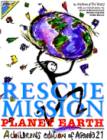Sustainable Development Learning
in Action
A Transformative Tool in Sustainability Education
"The great aim of education is not knowledge, but action."
— Herbert Spencer
Sustainable development, as formulated at the United Nations Rio Earth Summit in 1992, is ethics in action, resulting in intra- and inter-
generational equity as the way to peace and sustainability. It is a new expression of an age-old concept, one practised in traditional cultures (Orr, 1992).
An example is the
Haudenosaunee
Great Law of Peace
— an ethic mandating the welfare and wellbeing of the seventh generation to come.
Agenda 21 is the UN's comprehensive and detailed 'blueprint' or action plan for sustainable development (including, as important examples, peace making, internalization of social and environmental costs, and the precautionary and polluter pays principles), capable of transforming the economics barrier to sustainability.
According to Koïchiro Matsuura, former UNESCO Director General, 'The principles of sustainable development must find themselves in children's schooling. This means that education will have to change so that it addresses the social, economic, cultural and environmental problems that we face in the 21st century.'
Linking sustainability with teaching about the state of the planet offers a powerful integrating theme throughout education. Local sustainable development action by students is transformative for them (Leigh, 2005). Young students can grasp the sustainable development concept when presented as an ethic of fairness (Johnston, 2008).
For older students, sustainable development can be taught in science, civics and geography courses by integrating the economic, social equity, and environmental aspects of every topic in each course (the key principle of sustainable development). Graduating students should be competent in sustainability before entering the workforce.
For educational purposes, see:

Learning about sustainable development — its history and 'story,' its principles and processes, and its promise — can lead to action for sustainability (Johnston, 2003).
The Earth Charter calls for education to 'provide all, especially children and youth, with educational opportunities that empower them to contribute actively to sustainable development.' Environmental educators can teach about sustainable development in compelling, experiential ways that lead to, well, sustainable development.
The future depends on this.
References
Johnston, JD (2008). Success stories in sustainable development learning at Upper Canada College. Manuscript in preparation.
Johnston, JD (2003). Sustainable development learning as enticement to environmental action. Unpublished master's thesis. Antigonish, NS, St. Francis Xavier University, 126 pp.
Leigh, P (2005, April 4). The ecological crisis, the human condition, and community-based restoration as an instrument for its cure. Ethics in Science and Environmental Politics. 3 (15). Accessed 5/5/2019 at
http://www.int-res.com/articles/esep/2005/E60.pdf
Orr, DW (1992). Ecological Literacy: Education and the Transition to a Postmodern World, (SUNY Series in Constructive Postmodern Thought). Albany, NY, SUNY Press, 210 pp.
Return from Sustainable Development Learning to Transformative Tools for Sustainability Education
Return to GreenHeart Education Homepage